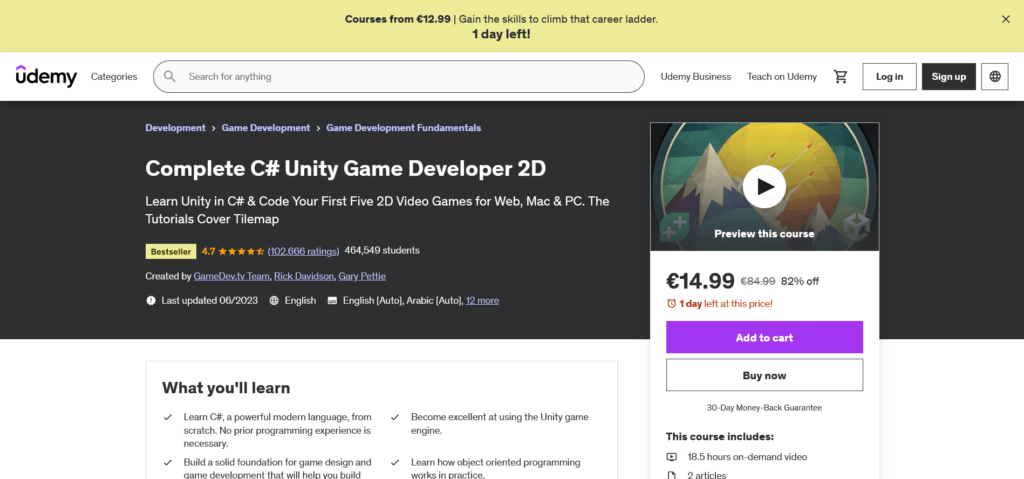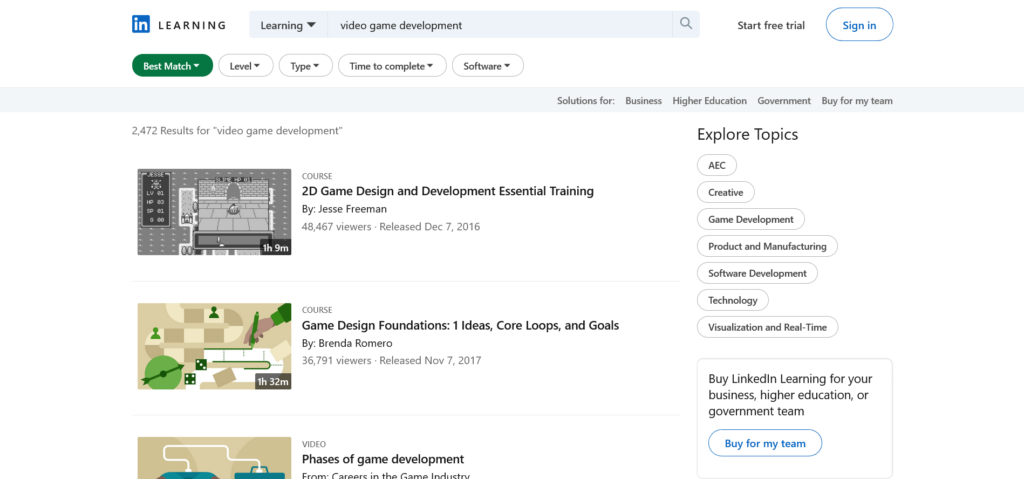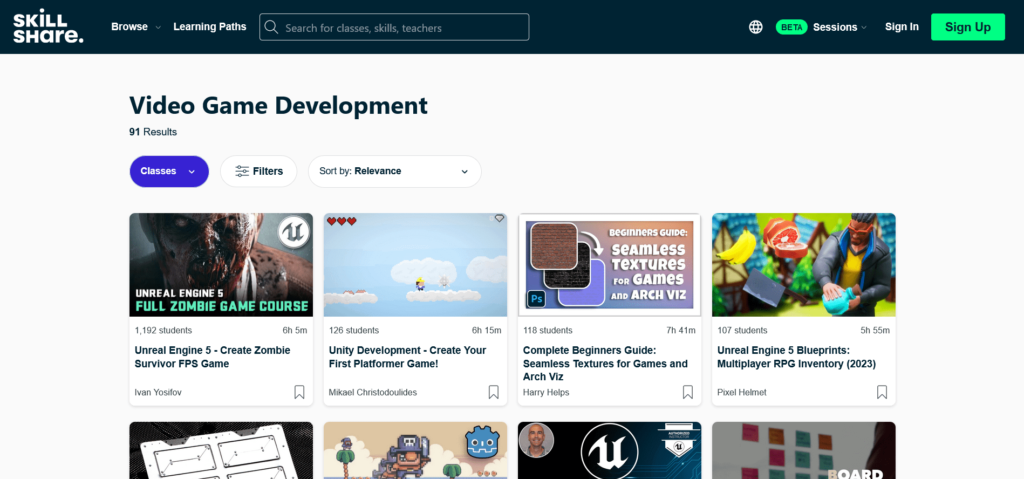Introduction
Starting an indie game studio requires a unique blend of artistic vision, technical expertise, and entrepreneurial spirit. As we delve into the intricacies of this dynamic process, you’ll discover valuable tips, industry trends, and actionable advice to set the stage for your game development venture. In this comprehensive guide, we’ll navigate the exciting world of indie game development, providing you with the essential insights and step-by-step strategies to turn your dream into a thriving reality.
So, if you’re wondering how to start an indie game studio, look no further. Whether you’re a seasoned developer seeking independence or a newcomer with a passion for gaming, this guide will empower you to navigate the challenges and embrace the opportunities that come with establishing your very own indie game studio.
Define Your Vision and Goals
Before diving into the world of indie game development, it’s crucial to define your vision and goals for the studio. Consider what type of games you want to create, your target audience, and the unique selling points that will set your games apart from the competition. Whether you’re passionate about narrative-driven adventures, retro-inspired platformers, or innovative puzzle games, clarity on your studio’s identity will guide your decisions moving forward.
Build a Talented Team
While some indie developers work solo, assembling a talented team can significantly enhance the quality and scope of your projects. Seek out individuals with complementary skills, including programmers, artists, designers, and musicians. Collaborating with like-minded creatives not only brings diverse perspectives to the table but also fosters a supportive environment for innovation and growth.
Choose the Right Tools and Technologies
In today’s digital age, indie developers have access to a plethora of tools and technologies to bring their creative visions to life. From game engines like Unity and Unreal Engine to design software like Adobe Creative Suite, choose the tools that best align with your team’s expertise and project requirements. Additionally, explore emerging technologies such as virtual reality (VR) and augmented reality (AR) to push the boundaries of gameplay and immersion.
Develop a Solid Business Plan
While passion and creativity drive indie game development, success also requires a solid business foundation. Develop a comprehensive business plan that outlines your studio’s goals, target market, revenue streams, and marketing strategies. Consider factors such as budgeting, funding sources (e.g., self-funding, crowdfunding, investors), and distribution platforms (e.g., Steam, itch.io, consoles) to ensure a sustainable path forward.
Embrace Iterative Development
Iterative development is a cornerstone of successful indie game development, allowing developers to refine their ideas through continuous feedback and iteration. Start with a minimum viable product (MVP) and gather feedback from playtesting sessions, online communities, and industry peers. Embrace constructive criticism as an opportunity for growth and refinement, iterating on gameplay mechanics, art style, and user experience to create a polished final product.
Cultivate an Engaged Community
Building a loyal and engaged community around your indie game studio is essential for long-term success. Leverage social media platforms, forums, and developer blogs to share behind-the-scenes insights, development updates, and interactive content with your audience. Engage with your community through regular communication, Q&A sessions, and interactive events to foster a sense of connection and ownership among your fans.
Prioritize Marketing and Promotion
In the crowded indie game market, effective marketing and promotion are critical to standing out and reaching your target audience. Develop a multi-channel marketing strategy that includes press releases, influencer partnerships, social media campaigns, and participation in gaming events and conventions. Create compelling trailers, screenshots, and promotional materials that highlight the unique features and gameplay experience of your games.
Monetization Strategies
Monetizing your indie games is essential for sustaining your studio’s growth and future projects. Explore various monetization strategies, including one-time purchases, downloadable content (DLC), in-game purchases, subscriptions, and ad-based revenue models. Consider the preferences of your target audience and the nature of your game when determining the most suitable monetization approach.
Adapt and Evolve
The indie game industry is constantly evolving, with new trends, technologies, and market dynamics shaping the landscape. Stay adaptable and open to change, continuously learning and experimenting with new ideas and approaches. Keep an eye on industry trends, player feedback, and competitor analysis to inform your decision-making and stay ahead of the curve.

Best Online Education Platforms to Learn About How to Start an Indie Game Studio?
In the dynamic landscape of the digital era, the dream of launching your own indie game studio has never been more attainable. With the surge in online education platforms, aspiring game developers can now acquire the essential skills to turn their passion into a thriving career. This article will guide you through the top online education courses platforms tailored for individuals aspiring to start their indie game studio.
Udemy

Udemy stands as a pioneer in the online learning domain, offering a plethora of game development courses. From beginner-friendly introductions to advanced programming techniques, Udemy provides a diverse range of courses led by industry experts. Topics covered include game design, coding languages like Unity and Unreal Engine, and essential project management skills.
Coursera
Coursera collaborates with top universities and industry leaders to bring comprehensive courses to your fingertips. The Full Stack Game Development Specialization covers every aspect of game development, from designing captivating gameplay to deploying your game on different platforms. Expect to gain insights into Unity, C#, and other relevant technologies.
Pluralsight
Pluralsight caters to the needs of technology professionals, offering in-depth learning paths specifically designed for game developers. These paths cover various game development aspects, including 2D and 3D game design, character animation, and VR development. With its hands-on approach, Pluralsight ensures you’re ready to face real-world challenges in indie game development.
LinkedIn Learning

Formerly known as Lynda.com, LinkedIn Learning offers a wide array of courses focusing on indie game development. Covering both technical and business aspects, these courses provide insights into marketing your indie game, securing funding, and establishing a sustainable studio. The platform’s seamless integration with LinkedIn also opens up networking opportunities within the gaming industry.
Skillshare

Skillshare’s unique selling point lies in its interactive approach to learning. With a vast library of classes, it offers courses ranging from game design fundamentals to advanced Unity programming. The platform’s emphasis on hands-on projects ensures that you not only understand the theory but also apply it practically.
Top 10 Most Searched Questions and Answers About How to Start an Indie Game Studio?
1. What is an indie game studio?
An indie game studio, short for independent game studio, is a small-scale game development company typically comprised of a small team or even a single developer. Unlike large game development companies, indie studios operate with more creative freedom and often focus on niche or innovative game concepts.
2. What are the key steps to start an indie game studio?
Starting an indie game studio involves several key steps:
- Define your vision: Clearly outline your game development goals, target audience, and unique selling points.
- Build a team: Assemble a team of talented individuals with skills in programming, art, design, and sound.
- Create a business plan: Develop a comprehensive business plan outlining your studio’s budget, revenue streams, and marketing strategies.
- Choose the right tools: Select game development tools and software that align with your project’s requirements and team’s expertise.
- Develop a prototype: Create a prototype or demo of your game to showcase your vision and attract potential investors or publishers.
- Establish an online presence: Build a professional website and utilize social media platforms to promote your studio and engage with your audience.
3. How much does it cost to start an indie game studio?
The cost of starting an indie game studio can vary significantly depending on factors such as team size, project scope, and development tools. Generally, you’ll need to budget for expenses such as equipment, software licenses, office space (if applicable), marketing, and possibly salaries for team members. While some indie studios operate on shoestring budgets, others may secure funding through crowdfunding campaigns, grants, or investments.
4. What are the challenges faced by indie game studios?
Indie game development comes with its own set of challenges, including:
- Limited resources: Indie studios often operate with limited budgets and manpower, requiring careful resource management.
- Market saturation: The indie game market is highly competitive, making it challenging for new studios to stand out among thousands of releases.
- Marketing and visibility: Promoting your game and gaining visibility in a crowded market can be difficult without a significant marketing budget or established audience.
- Time constraints: Developing a game from start to finish can be time-consuming, especially for small teams juggling multiple roles.
5. How can indie game studios secure funding?
Indie game studios can secure funding through various channels, including:
- Crowdfunding: Platforms like Kickstarter and Indiegogo allow developers to raise funds directly from backers in exchange for rewards or early access to the game.
- Grants and awards: Many organizations offer grants, scholarships, or awards to support indie game development. Research and apply for relevant opportunities in your region.
- Investors and publishers: Some indie studios secure funding by pitching their game concepts to investors or partnering with indie-friendly publishers who provide financial support in exchange for a share of revenue.
6. What are the best game engines for indie developers?
Several game engines cater to indie developers, offering a balance of features, accessibility, and affordability. Some popular choices include:
- Unity: Widely used for its versatility, robust feature set, and cross-platform capabilities.
- Unreal Engine: Known for its stunning graphics, powerful tools, and intuitive workflow.
- Godot Engine: A free and open-source option with a user-friendly interface and strong community support.
- GameMaker Studio: Ideal for 2D game development, offering a visual scripting system and rapid prototyping capabilities.
7. How can indie game studios market their games effectively?
Effective marketing is crucial for indie game studios to reach their target audience and generate buzz around their games. Key strategies include:
- Social media: Utilize platforms like Twitter, Facebook, Instagram, and Reddit to share development updates, engage with your community, and build hype.
- Press outreach: Contact gaming journalists, bloggers, and YouTubers to secure coverage and reviews of your game.
- Partnerships and collaborations: Collaborate with influencers, streamers, or other indie developers to cross-promote each other’s games and expand your reach.
- Game festivals and events: Showcase your game at industry events, game festivals, and conventions to network with players, press, and potential partners.
8. What are the legal considerations for indie game development?
Indie game developers must consider various legal aspects, including:
- Intellectual property: Ensure you have the rights to use all assets in your game, including art, music, and code. Consider trademarks, copyrights, and licenses where applicable.
- Contracts and agreements: Draft contracts for team members, collaborators, and any third parties involved in your project. Clearly define roles, responsibilities, and revenue sharing agreements.
- Privacy and data protection: Understand and comply with relevant data protection laws, especially if your game collects user data or includes online features.
9. How do indie game studios monetize their games?
Indie game studios can monetize their games through various revenue models, including:
- Paid downloads: Offer your game for a one-time purchase price on platforms like Steam, itch.io, or the App Store.
- In-app purchases: Implement in-game purchases for virtual goods, currency, or additional content.
- Subscription models: Offer subscriptions for access to premium features or ongoing content updates.
- Ads and sponsorships: Integrate ads or sponsored content into your game to generate revenue from user engagement.
10. What are some success stories of indie game studios?
Numerous indie game studios have achieved remarkable success with their titles, inspiring aspiring developers worldwide. Some notable success stories include:
- Team Cherry: Known for their hit game “Hollow Knight,” which garnered critical acclaim and a dedicated fanbase.
- Stardew Valley: Developed by solo developer ConcernedApe, this indie farming simulation game became a commercial and critical success, selling millions of copies worldwide.
- Supergiant Games: The studio behind titles like “Bastion,” “Transistor,” and “Hades,” known for their distinctive art style and compelling narratives.
Starting an indie game studio is a challenging but rewarding endeavor that requires careful planning, creativity, and perseverance. By addressing the top 10 questions about starting an indie game studio, we hope to provide aspiring developers with valuable insights and guidance to embark on their own game development journey. Remember to stay passionate, adaptable, and always strive for innovation in your game projects. Good luck!
Conclusion
In conclusion, starting an indie game studio is a thrilling venture that demands a mix of passion, creativity, and business savvy. This guide on “How to start an indie game studio” underscores key factors for success.Crafting a clear vision and unique game concept, assembling a talented team, and strategic budgeting are pivotal. Additionally, proactive marketing and community engagement are vital for building a brand and connecting with the audience.This comprehensive roadmap of how to start an indie game studio, isn’t just a guide; it’s a blueprint for transforming aspirations into reality. With a solid foundation and strategic approach, indie game developers can carve their niche, creating games that resonate globally. Incorporate these key takeaways into your approach, and you’ll master the art of how to start an indie game studio, propelling yourself towards a rewarding career as a successful indie game developer.














